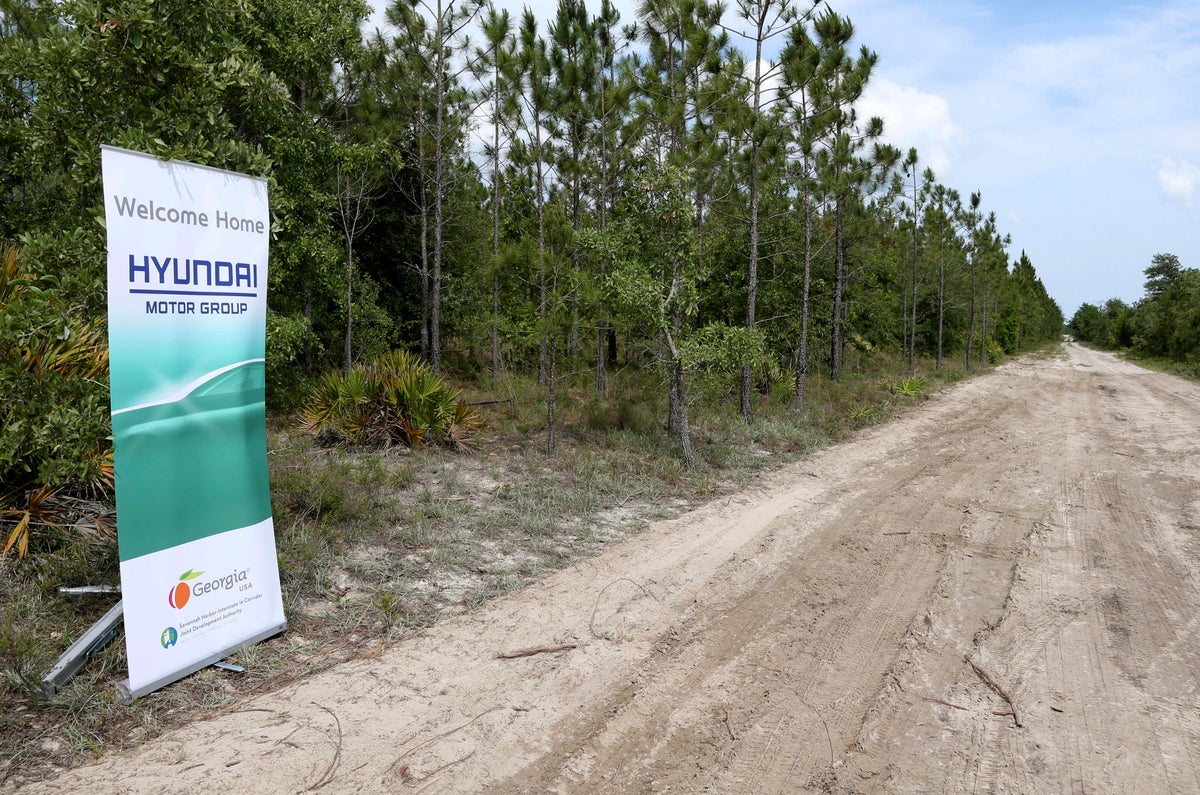
The local economic development agency that worked with Georgia officials in recruiting Hyundai Motor Group to build a $5.5 billion electric car plant near Savannah approved its portions of the deal Tuesday, though details of tax breaks and other incentives have yet to be disclosed.
The joint development authority that voted to enter the deal represents four southeast Georgia counties that will give up hundreds of millions in taxes in exchange for at least 8,100 jobs Hyundai has promised to create. Officials said they won't release details of the incentives package until the state and Hyundai finalize the deal, possibly later this week.
“I think it's very fair, I think it's very equitable,” Trip Tollison, who heads the Savannah Economic Development Authority, said of the deal. “I think it represents what the region needs to make the company — the folks moving here with all the jobs — successful.”
Republican Gov. Bryan Kemp called the project the largest economic development deal in Georgia's history when it was announced two months ago in Bryan County, where Hyundai plans to build the company's first U.S. plant dedicated to electric vehicles. The automaker plans to start construction next year and begin producing up to 300,000 vehicles per year in 2025.
State officials have said that the incentive package would be similar to the $1.5 billion in tax breaks and spending given to Rivian Automotive, which is planning an electric vehicle factory east of Atlanta.
The top item in that Rivian package was $700 million in property taxes waived by local governments over 25 years. The company agreed to make $300 million in payments in lieu of taxes starting in 2023. The Savannah Harbor-Interstate 16 Corridor Joint Development Authority voted Tuesday on how money from Hyundai's payments in lieu of taxes would be shared, but did not release how much projected tax revenues are being waived or how much Hyundai will pay.
Tollison, who works with the joint development authority, said Bryan, Bulloch, Chatham and Effingham counties must still approve the revenue-sharing agreement. He said Bryan County would get the majority of the money, but that other counties would share in revenue because they are putting up money to buy land and build roads, and also will see growth from the deal.
One major benefit for Hyundai will be an income tax credit worth an estimated $213 million. That's based on the credit of $5,250 per job over five years that Georgia offers for its largest development projects. If Hyundai didn’t owe that much state corporate income tax, Georgia would instead give the company personal income taxes collected from Hyundai workers.
Hyundai is also likely to save hundreds of millions of dollars from sales tax exemptions on machinery and construction materials.
State and local officials already spent $61 million to buy 2,200 acres (890 hectares) for the project site in Bryan County. The partners later bought another 700 acres (283 hectares) but haven’t disclosed how much the additional land cost. The authority approved a $65.7 million contract Tuesday to clear the land. It also approved a contract to design an entrance road.
Kia, another subsidiary of the Hyundai Motor Group, got more than $450 million in incentives for its plant in West Point, southwest of Atlanta. Georgia has promised SK Innovation $300 million in incentives for a $2.6 billion, 2,600-worker battery plant that the Korean company is building northeast of Atlanta.
—-
Amy reported from Atlanta.







